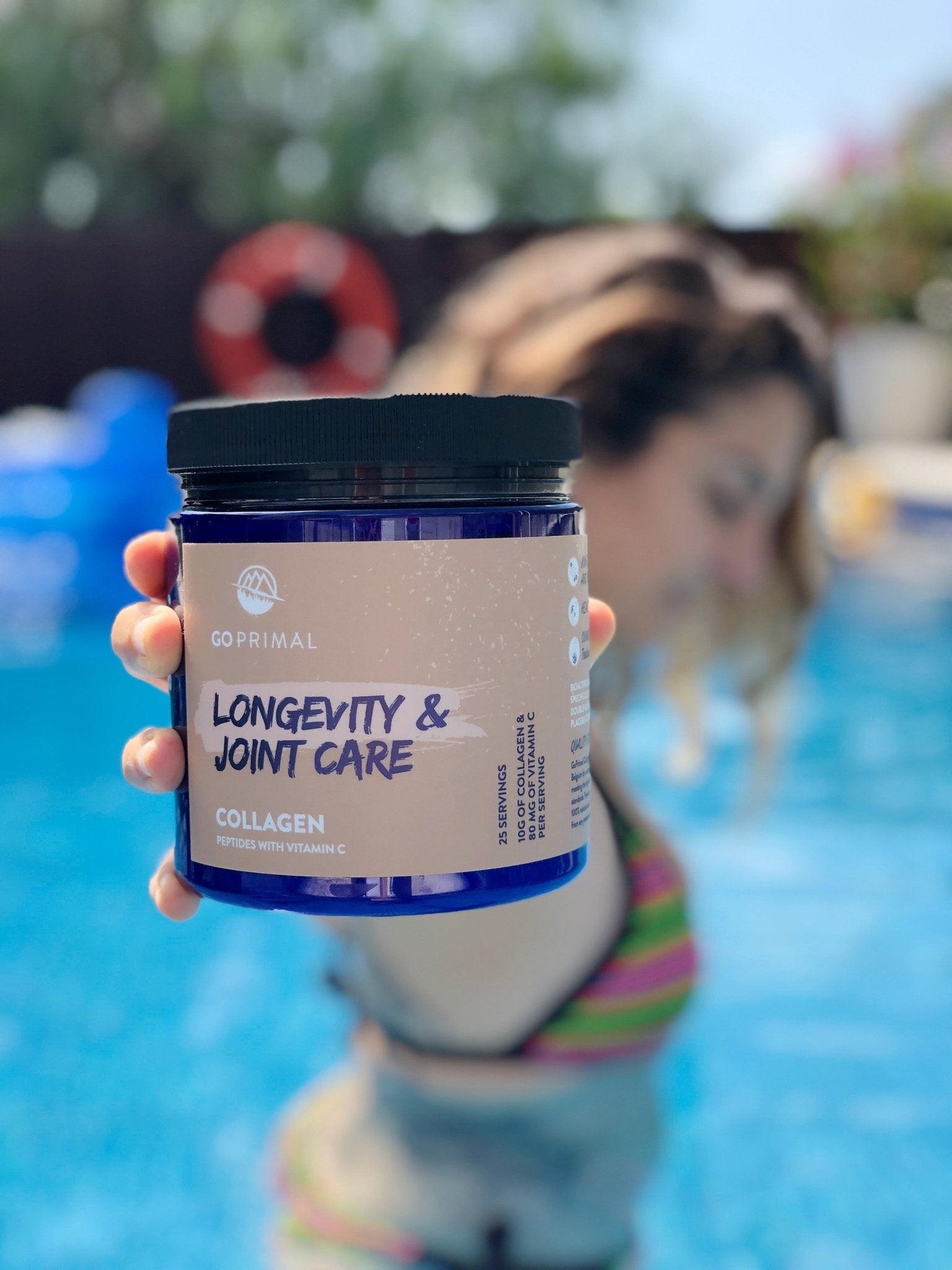
How much protein do I really need - word from an athlete
How much protein do I really need - from an athlete's point of view

Proteins - functions and needs for the athlete
The main aspect for athletes with regard to protein is to build muscle and support their training adaptations with a “correct” intake. We explain the important individual aspects below, but it should already be said: the total amount of protein is decisive at the end of the day.
For building muscle, muscle protein synthesis is the most important factor: the rate of build-up must be superior to that of protein breakdown. Insulin should be known as a hormone, which inhibits the breakdown processes, while protein stimulates the breakdown processes. In addition to the muscle structures, other protein-rich structures such as antibodies, enzymes or transport proteins are also continuously built up.
Appropriate training and optimal calorie intake are also crucial for muscle protein synthesis.
The generally accepted guidelines for athletes regarding the daily protein requirement amount to 1.4 - 2g / kg per day in order to support the additional requirement for training adaptations.
Endurance athletes should orientate themselves at the lower end, while strength athletes can make themselves comfortable at the upper end.The final amount is individual and depends on the training status (elite vs. amateur) and the type of sport. Athletes should stay between 1.6 - 2g / kg per day - an upper end is recommended due to the further positive effects on satiety and the immune system.
The most important amino acids that most effectively influence muscle protein synthesis are the essential amino acids and above all the amino acid leucine.
Meal timing
During training, our muscle structures are stressed and have to be rebuilt and “repaired” - this is where the post-workout window comes into play: after training there is a higher sensitivity to amino acids, which is why a protein shake after training is very useful - im In conjunction with a carbohydrate source, the regeneration window can be used even better (with regard to muscle glycogen resynthesis). A protein shake is not a must and you can prepare the same amount of protein with a normal meal.
An even division of three to five or even six meals a day makes sense, with a minimum of 25-40g protein per meal - the rate and stimulation of muscle protein synthesis was measured here. Depending on the type and load of training, the upper or lower end can be focused. Proteins that are timed around the training and are rich in essential amino acids (LIKE OUR WHEY PROTEIN) have been shown to be beneficial for building muscle mass, regeneration and maintaining immune functions during a high-intensity training phase.
What about BCAAs?

BCAA drinks and powders consist of the amino acids: leucine, isoleucine and valine (Branched-Chain Amino Acids). Since leucine is the main trigger of muscle p
ro
tein synthesis, there is still wild speculation about its benefits.
It is very important to note that while leucine is more than just important for muscle protein synthesis, this amino acid is also found in protein-rich foods or protein powders (as in our whey protein), which is why additional supplementation is usually useless.
However, vegans and vegetarians in particular can benefit from such a supplementation - since vegan protein sources usually have a worse amino acid profile than animal protein sources (especially leucine) - the goal is to achieve a leucine amount of 45 mg / kg / day.
Protein requirement in the calorie deficit
There should be a new blog post for this topic, as the recommendations for protein requirements in a diet depend on various factors.
Bodybuilders use more aggressive calorie deficits than other sports that depend on a certain carbohydrate intake.
However, it should be said here: the higher your calorie deficit, the higher your protein amount per day should be. And here, too, the timing of meals and the supplementation of leucine are the “least important” part of the protein pyramid - because in the end, the total amount of protein per day is always decisive for maintaining muscle.
References:
- Campbell, B., Kreider, R.B., Ziegenfuss, T. et al. International Society of Sports Nutrition position stand: protein and exercise. J Int Soc Sports Nutr 4, 8 (2007). https://doi.org/10.1186/1550-2783-4-8
- S. M. Phillips and L. J. C. van Loon, “Dietary protein for athletes: From requirements to optimum adaptation,” J. Sports Sci., vol. 29, no. SUPPL. 1, Jan. 2011, doi: 10.1080/02640414.2011.619204
- Kerksick CM, Rasmussen CJ, Lancaster SL, Magu B, Smith P, Melton C, et al. The effects of protein and amino acid supplementation on performance and training adaptations during ten weeks of resistance training. J Strength Cond Res. 2006;20:643–53.


